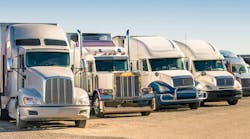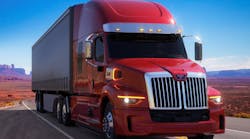Aeris.net is betting big that 2001 will be the year that land-based communications networks for mobile tracking systems really take off — and freight transportation customers will make up a huge chunk of that market.
“The land-based mobile tracking sector is coming on strong now,” said Dan Jester, director of mobile applications for California-based Aeris.net (www.aeris.net), in an interview with FLEET OWNER. “Last year, we were developing the requirements for land-based mobile technology and launching pilot projects to test it out. This year will be the year the market will really take off.”
Jester said Aeris.net considers the freight transportation industry its second-biggest target market for land-based mobile applications, right behind the home security market, because of low cost and more reliable national coverage.
He said widespread coverage has always been the strong point of satellite-based systems. Yet satellite-based tracking has also been more expensive and usually encounters transmission blockage in major urban areas, said Jester. That's where today's land-based systems have an advantage — not only do they cost less than satellite-based technology, they can also locate vehicles when they are in a warehouse behind closed doors.
Aeris.net uses a form of wireless transmission technology called Microburst to send short data messages in quick bursts at a low cost. The company partners with the makers of receiver technology — such as Lat-Lon — which provide the device that sends and receives the transmissions from the truck cab or trailer. The two pieces fit together nicely for trucking, said Jester, because they are a far cheaper alternative than satellite systems.
“Truckers are price-sensitive customers, yet they also need widespread coverage, since they deliver goods to every conceivable part of the country,” said Jester. “That's why we think land-based mobile tracking fits nicely with trucking's requirements.”


